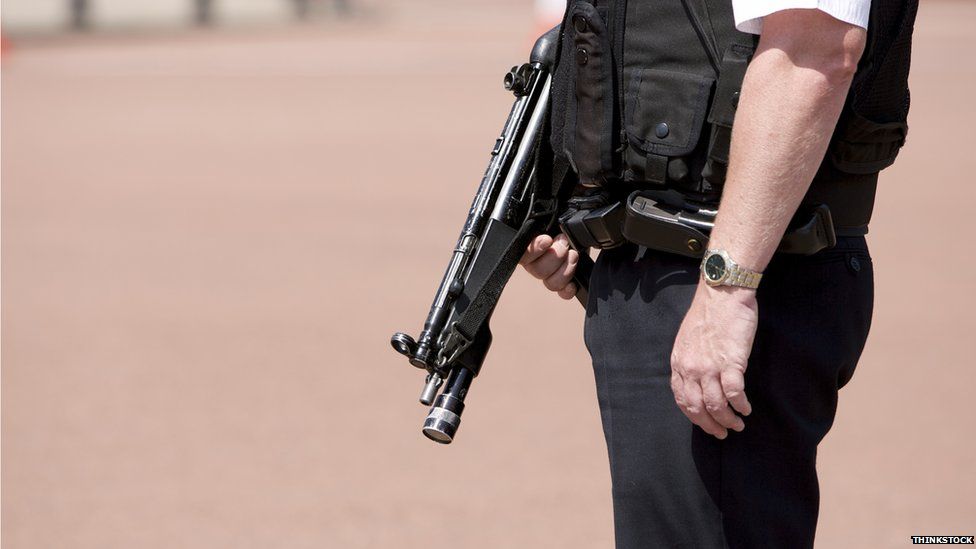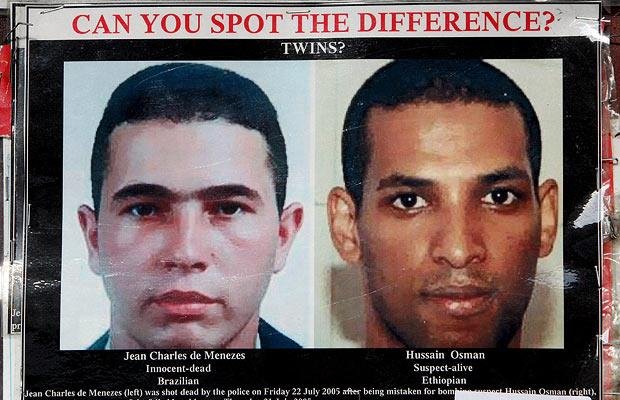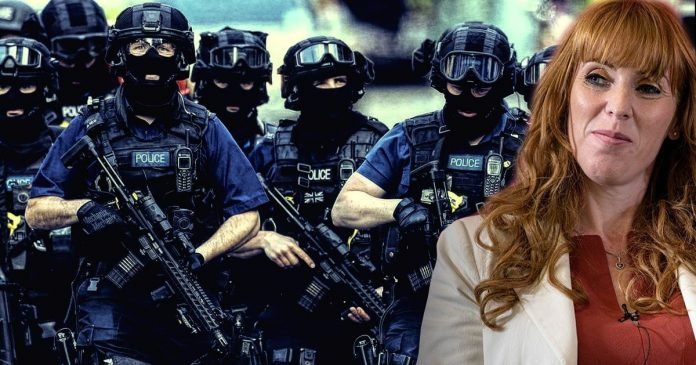Tough on crime, tough on our liberties.
Labour’s deputy leader Angela Rayner has tried to talk tough on crime saying Britain’s terror police should “shoot first” and “ask questions second”, as the party sets out its credentials on law and order.
“On things like law and order, I am quite hardline. I am like, shoot your terrorists and ask questions second,” Ms Rayner told Matt Forde’s Political Party podcast.
Her comments were meant to stoke controversy, however, the reality is under Sir Keir Starmer he would bring in a new age ‘The Rule of Lawyers’ a dystopian authoritarian future where everything is legislated. After all, he is a Trilateralist, their aim is to reduce democracy and stifle our liberties.
Sir Keir Starmer aims to use this week’s parliamentary recess to outline a tougher approach on crime.
Earlier this week the Labour leader accused the Government of being “soft on crime and soft on the causes of crime” by failing to tackle violence and to provide enough opportunities for you people.
Steve Reed, the shadow justice secretary, has also suggested the party would look at introducing a scheme “naming and shaming” those who are convicted of buying illegal drugs.
Angela Rayner distanced herself from Jeremy Corbyn’s approach to criminal justice issues, saying she was on a “different page” to the former Labour leader.
Asked by the BBC in 2015 if he would be happy to order police to shoot to kill on Britain’s streets after the Bataclan terror attacks, the former Labour leader said: “I’m not happy with a shoot-to-kill policy in general”, adding that it can be “quite dangerous” and “counter-productive”.
Mr Corbyn said there were “various degrees of doing things as we know… surely you have to work to prevent these things from happening, that’s got to be the priority”.
Is there a shoot-to-kill policy for terrorists?

Shoot-to-kill is not a policy but an action that may be required if there’s a threat that endangers other peoples’ lives.
Police are trained to do whatever it takes to neutralise a threat.
The UK’s police forces do not have a blanket shoot-to-kill policy however police can be legally justified in shooting at the head even if the attacker ends up dead.
The Home Office says: “Under the Criminal Law Act 1967, the use of force for the prevention of crime and apprehension of offenders and those unlawfully at large must be ‘reasonable’ in all the circumstances.
It comes down to the law of self defence or defending others in a threatening situation.
If the police or military believes there is a threat to life, then it may be appropriate to shoot someone.
An example of this could be an attacker wearing a suicide belt with hostages.
The Home Office told Newsbeat: “Operations involving firearms will be intended in appropriate circumstances to bring an end to an imminent threat to life or of serious injury.
“However, the use of force must be justified under the law, and must be reasonable in the circumstances.”
“It may be for a court to decide whether that was the case.”
Firearms operations are normally authorised by senior officers.
It is the individual officer’s call whether he or she pulls the trigger.
That officer must be able to justify, under the law, that their action was reasonable force to protect themselves or others.
Government ministers would never be able to tell an armed officer how to respond to a specific situation they are dealing with.
The police and military rely on questions being asked, that how intelligence works, or at least most of the time.
Most of us that have served, who have been on the frontlines actually understand the Ryners response is naive.
David We need our security services to make the “right” decision not a “shoot first, ask questions later decision.”
As the Tory MP and Ex-SAS member, David Davis Tweeted:
“We need our security services to make the “right” decision not a “shoot first, ask questions later decision.”
“This kind of heavy handed approach cost Jean Charles de Menezes his life. I wonder if the former Director of Public Prosecutions would back such a move @Keir_Starmer 🤔”
We need our security services to make the “right” decision not a “shoot first, ask questions later decision.”
— David Davis (@DavidDavisMP) February 17, 2022
This kind of heavy handed approach cost Jean Charles de Menezes his life. I wonder if the former Director of Public Prosecutions would back such a move @Keir_Starmer 🤔 https://t.co/w3KAwga806
What happened in the Jean Charles de Menezes case?
The image below shows a justice campaign compared the suspect to the innocent De Menezes

On 22 July 2005, armed officers pinned down and repeatedly shot in the head a man they thought was a suicide bomber on a train at Stockwell tube station, south London. .
The shooting happened when counter-terrorism officers mistook the innocent electrician for one of the terrorists behind an attack on the capital a day earlier.
De Menezes, a 27-year-old Brazilian national, was repeatedly shot in the head at Stockwell tube station in a south London in July 2005 by police officers who mistook him for a suicide bomber.
Mr de Menezes’s family led a long campaign calling for police officers to be prosecuted for the shooting and criticising Scotland Yard for its handling of the operation, which was led at the time by Dame Cressida.
She spent three days giving evidence and told the jury she was told five times that surveillance officers thought a man they were following was Osman.
Ms Dick said in 2007: “From the behaviours described to me, nervousness, agitation, sending text messages, using the telephone, getting on and off the bus, it all added to the picture of someone potentially intent on causing an explosion.”
At a 2008 inquest, she said: “If you ask me whether I think anybody did anything wrong or unreasonable on the operation, I don’t think they did.”
The inquest jury returned an open verdict, seen as demonstrating its members were unconvinced by the police account of events.
The Metropolitan police commissioner, Sir Bernard Hogan-Howe, insisted that there was no shoot-to-kill policy.
He told LBC radio: “I can make it clear that we do not have a shoot-to-kill policy. The law says that the police can use reasonable force, firstly to stop a crime, and secondly, to arrest someone who is putting someone else in danger. If someone’s life is at risk, a police officer can intervene. If they are armed or otherwise so dangerous, we can stop them.” He added that officers “work within the law”.
An armed police officer faced with a terrorist on a shooting spree has no special legal status. They are subject to the criminal law and the law of self defence.
The decision to shoot is the officer’s alone. They are legally responsible for each and every shot they decide to fire. For the shots to be legal, they must show they were acting in the defence of themselves or others and that their actions were proportionate. Section three of the 1967 Criminal Law Act reads: “A person may use such force as is reasonable in the prevention of crime.”
If an officer honestly believes someone poses a threat to their life, or to the life of others, reasonable force may be used.
But there is one thing the police and intelligence agency must do, that is to ask questions.
July 22, 2005: Jean Charles de Menezes is shot dead on a train at Stockwell Underground station in South London.
The shooting happened when counter-terrorism officers mistook the innocent electrician for one of the terrorists behind an attack on the capital a day earlier.
De Menezes, a 27-year-old Brazilian national, was repeatedly shot in the head at Stockwell tube station in south London in July 2005 by police officers who mistook him for a suicide bomber.
The lessons learnt from the inquire into the fatal shooting focused on asking the right questions:
For example, if Cressida Dick had known that Brixton underground station had been shut that morning then De Menezes getting off a bus and then getting back on it again would have looked entirely rational. However, London Underground’s maintenance schedule would probably not be high on her list of urgent information requirements when there is suspected suicide terrorist on the loose. Likewise, it takes a long time to assemble all the information you need to make an informed decision from scratch which means that decisions are either (a) taken too early which if things go wrong you will be accused of shooting from the hip or (b) too late which means you run the risk of making the decision too late. In the case of De Menezes, it appears Cressida Dick was forced to make many of her decisions too late.
All of the above can be very easily avoided by the use of modern information systems – however, there has been a reluctance to embrace such technology.
Information is key and asking questions is how we are informed.
Mr de Menezes’s family led a long campaign calling for police officers to be prosecuted for the shooting and criticising Scotland Yard for its handling of the operation, which was led at the time by Dame Cressida.
I am very sure other officers and members of the military would never like to be in the situation of killing an innocent, questions are necessary intelligence is key.
Support Independent Journalism Today
Our unwavering dedication is to provide you with unbiased news, diverse perspectives, and insightful opinions. We're on a mission to ensure that those in positions of power are held accountable for their actions, but we can't do it alone. Labour Heartlands is primarily funded by me, Paul Knaggs, and by the generous contributions of readers like you. Your donations keep us going and help us uphold the principles of independent journalism. Join us in our quest for truth, transparency, and accountability – donate today and be a part of our mission!
Like everyone else, we're facing challenges, and we need your help to stay online and continue providing crucial journalism. Every contribution, no matter how small, goes a long way in helping us thrive. By becoming one of our donors, you become a vital part of our mission to uncover the truth and uphold the values of democracy.
While we maintain our independence from political affiliations, we stand united against corruption, injustice, and the erosion of free speech, truth, and democracy. We believe in the power of accurate information in a democracy, and we consider facts non-negotiable.
Your support, no matter the amount, can make a significant impact. Together, we can make a difference and continue our journey toward a more informed and just society.
Thank you for supporting Labour Heartlands












